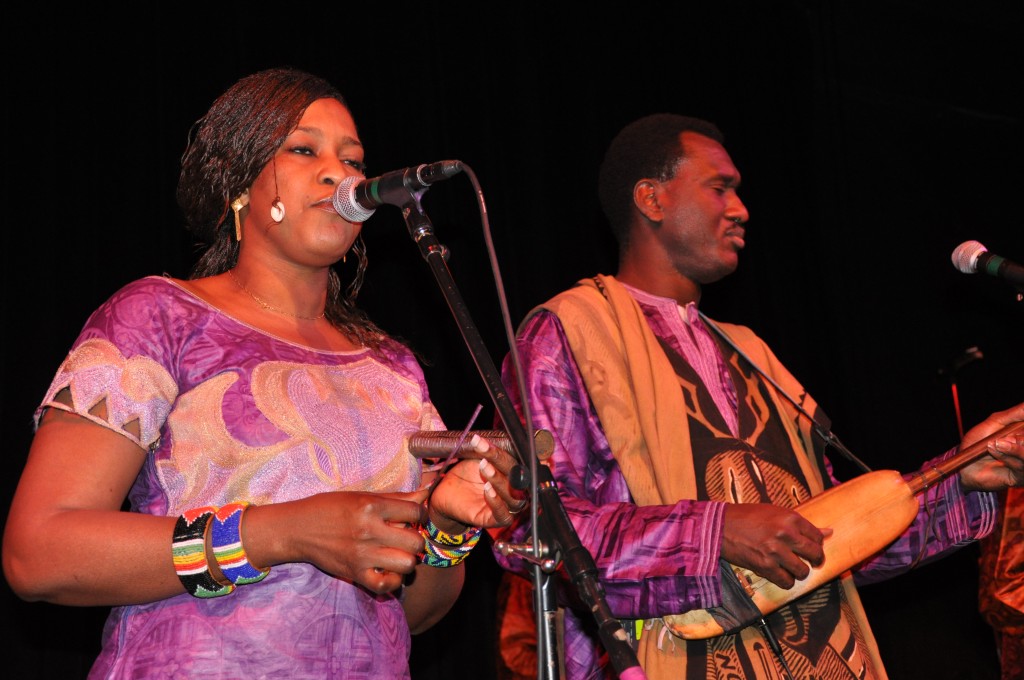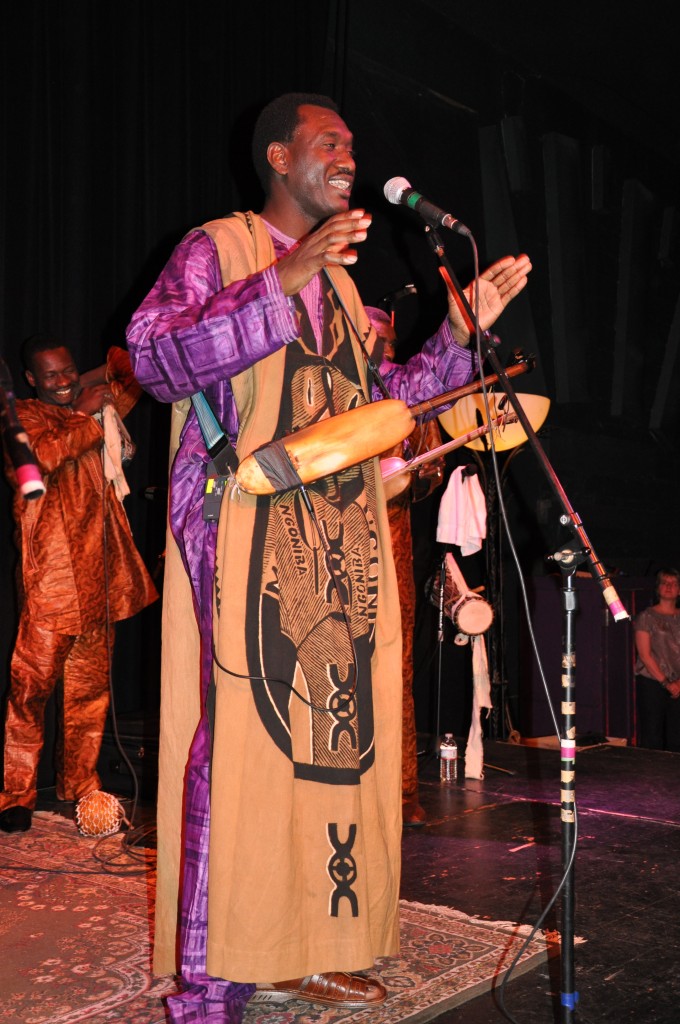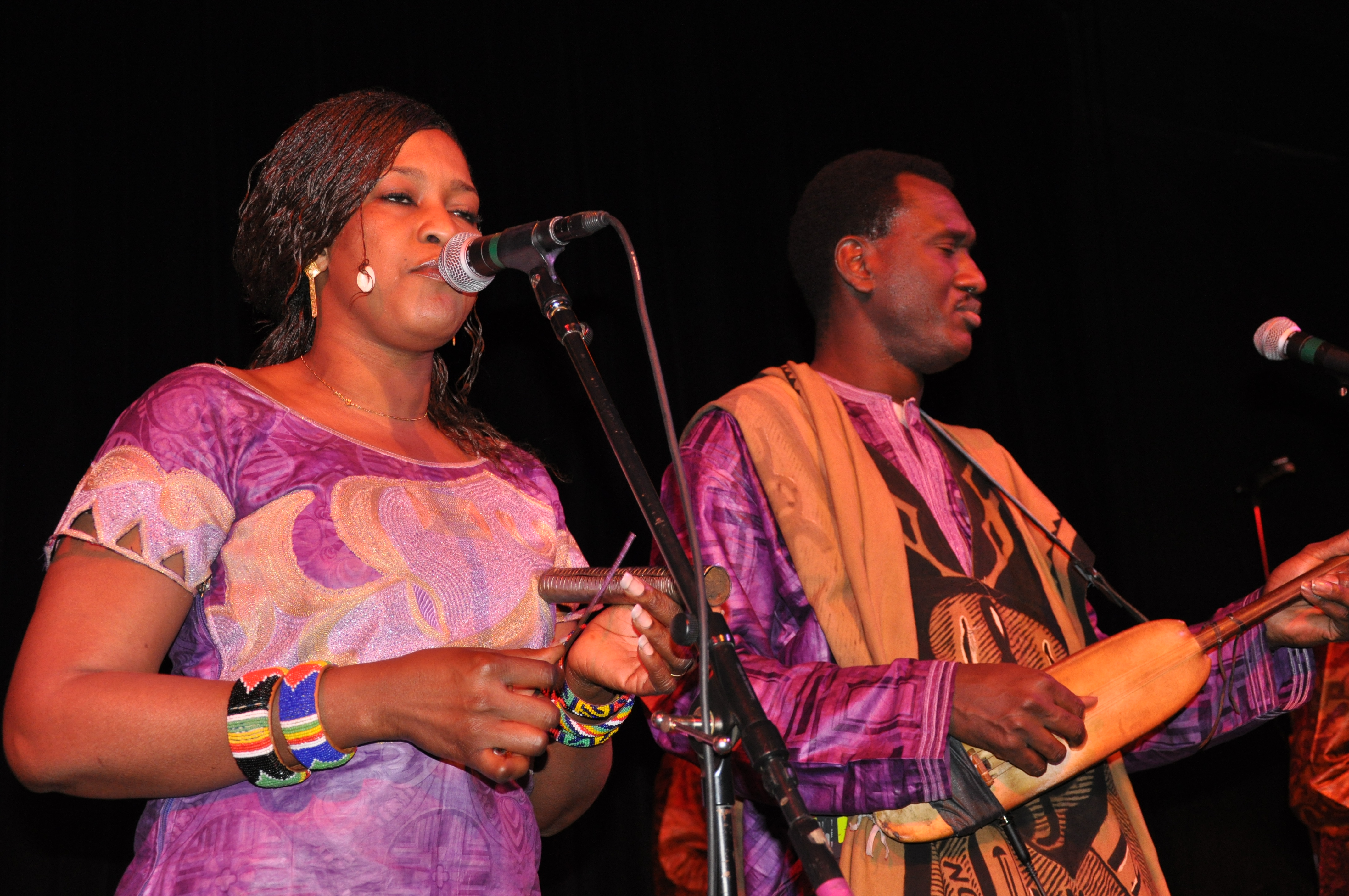Issa A. Mansaray | The AfricaPaper
Minneapolis, Minn – When Malian musician Bassekou Kouyate appeared on stage at the Cedar Cultural Center last summer, his music mesmerized his audience. He entertained them with tunes that some had never heard before and displayed the range of his tiny traditional instrument, the n’goni.

Bassekou greeted his fans with a few English words, but he is the first to confess that, given his limited English, he was happy when someone from the audience greeted him in his native Bambara. For the crowd it was not a problem; they understood Bassekou’s international language – music.
On his first tour in America, Bassekou moved on stage with the aura of a maestro, and the audience danced, clapped, jumped and shouted. Some even closed their eyes and shook their heads vigorously for hours to Bassekou’s n’goni.
“I don’t know anything about him,” said Darcy Sudder, who had come to see the Malian musician for the first time. “But, I like to dance.”
Bassekou shared the stage with his wife, Amy Secko, and his band, N’goni Ba.
“I like the music,’ said Malian Bass Konare, 32. Though Konare, who lives in the Twin Cities, hails from Mali, this was his first time seeing his compatriot perform live on stage. “It is like home. That is why I like his music… He is the best.”
Many also went purposely to see Bassekou playing the n’goni. “I enjoyed it a lot, this instrument and how they are using it according to their tradition,” said actress Katie Kaufmann, 22, as she danced endlessly to the n’goni beat. “I heard the music on the internet before coming.”
One of Bassekou’s favorite songs is “Falani,” which talks about a young, uncircumcised orphan. In it, he tells about the boy who couldn’t show up for the rites to manhood. He doesn’t have a father to take him to the societal bush to be circumcised, only to be rescued at the last minute by a genie.
For Bassekou, the melancholic situation of the young orphan in his song reflects the troubles most orphans face in Africa and other countries. He talked about social issues: “War makes me very sad,” said Bassekou, who recently received the prestigious Kora Award in South Africa. “The natural disaster in Haiti also torments me.”
What makes him happy is “the kindness and honesty of the people in Africa.” Bassekou Kouyate is a griot and comes from one of the greatest griot families in Mali. The griots are professional poets and musicians who travel in many Africa countries.
On stage, Bassekou said he felt very happy and in high sprit as he performed in Minnesota. “To play African music with African instruments,” he said, “really makes me feel very comfortable.” It also delights him and N’goni Ba when fans dance to their tunes and their little-known instruments.
“I am happy when people are dancing to my music,” Bassekou said. “It is a typical pentatonic music, originally coming from Bambara.” The type of music he plays has been in Mali and the West Africa region since the 17th century.
Played in rhythmic style, the n’goni is more than 2,000 years old and has been in Mali since then. The problem, according to Bassekou, is that the music and the n’goni instruments were never introduced to the outside world or brought to international level. The task for Bassekou and his band, N’goni Ba, is to bring the music and instruments to an international audience.
“It is my initiative to make this music available to the entire world,” said Bassekou. “That is my goal, that is my path, and that is what I want to do.”

Born in a village without schools, Bassekou said he started singing when he was eight years old. Music was the only form of education for him, and he had to learn every bit of it from his parents, grandparents, and the elders in his village.
His father, Mustapha Kouyate was a famous musician and n’goni player in Mali, who first introduced him to the instrument. The n’goni is a traditional, tiny-necked, West African stringed lute that is also known as the granddaddy of West Africa stringed instruments.
At age seven, Bassekou toured West African villages with his mother. Carrying her n’goni instruments, he honed his skills in playing it. Bassekou said his mother, Yakare Damba, a prominent singer with a voice that penetrated the village nights, taught him the art of singing that now accompanies every stroke of the strings on his n’goni.
Bassekou’s work blends West African and American musical roots. Though he has played with Bono, banjo leader Bela Fleck, and other great world musicians, Bassekou recently grooved into blues and country music with Taj Mahal in 1990, an experience he described as friendly and cordial.
Featured in Fleck’s film Throw down your Hearts, Bassekou performed the title track on the soundtrack album that won a Grammy for Best Contemporary World Music Album and Best Pop Instrument Performance.
After his acclaimed, award-winning album Segu Blue, the Malian maestro and his group were in the United States on a marathon of musical performances in 50 cities promoting their new album I Speak Fula.
Bassekou draws solace from the poor people he interacts with from different countries in Africa and around the world. At the Cedar, Bassekou and his band received one of the heartiest ovations that I have never witnessed. “Their frankness,” Bassekou said of his audience, “when they meet and welcome strangers, gives me happiness and comfort.” |TAP|
© World Copyright The AfricaPaper Media Corporation, 2011
Issa A. Mansaray welcomes reader responses to issa@fbg.358.myftpupload.com.













































Great article! I loved the knowledge and the information given . In addition, your article writing style is very pleasing to read. If you have enough time kindly check out my brand new webpage and tell me what you think.
I came across your website just to look, but I had to leave this comment to say how much I appreciate your work. Thanks for the help.
We all know why this site is so useful. congrats!!
Comments are closed.